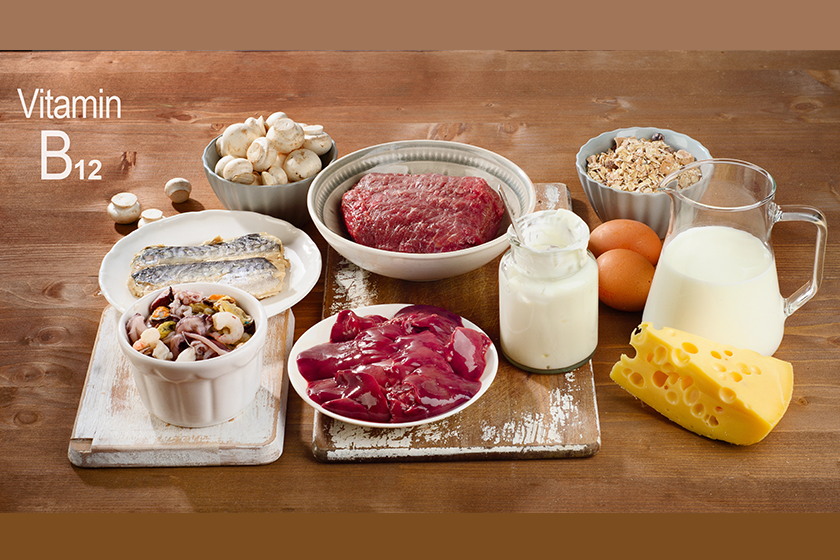Vitamin B12 deficiency is a common yet often overlooked condition that can significantly impact your loved ones’ health. Identifying the symptoms of vitamin B12 deficiency in seniors is crucial for timely intervention and treatment.
Understanding these symptoms can lead to improved quality of life and overall well-being. In this article, we’ll explore the key symptoms of vitamin B12 deficiency in seniors and discuss how you can support your loved ones in maintaining optimal health.
Understanding Vitamin B12 and Its Importance
Vitamin B12 is a vital nutrient crucial in red blood cell formation, nerve function, and DNA synthesis. It is naturally found in animal products such as meat, fish, eggs, and dairy. For those who consume a balanced diet, vitamin B12 deficiency is uncommon. However, as you and your loved ones age, absorption of this essential vitamin may decrease, leading to potential health issues.
As the body ages, changes in the digestive system, such as reduced stomach acid production and certain medications, can hinder the absorption of vitamin B12. This makes it particularly important for you and your loved ones to monitor vitamin B12 levels and address any deficiencies promptly.
Identifying Symptoms of Vitamin B12 Deficiency
Recognizing the symptoms of vitamin B12 deficiency in seniors can be challenging due to their subtle and varied nature. Some symptoms may be mistaken for normal aging or other medical conditions. It’s important to be aware of the following signs and take action if you notice any changes in your loved ones’ health.
- Fatigue and Weakness: Fatigue is one of the most common symptoms of vitamin B12 deficiency. You might notice your loved ones feeling unusually tired or weak, even after a good night’s sleep. This can result from reduced red blood cell production, leading to decreased oxygen delivery to the body’s tissues.
- Cognitive Changes: Vitamin B12 plays a significant role in maintaining healthy brain function. Deficiency in this vitamin can lead to cognitive changes, including memory loss, confusion, and difficulty concentrating. If you notice your loved ones experiencing these symptoms, it’s essential to consider the possibility of a vitamin B12 deficiency.
- Nerve Damage and Tingling Sensations: Another symptom of vitamin B12 deficiency is nerve damage, which can manifest as tingling or numbness in the hands and feet. This sensation, often described as “pins and needles,” can be uncomfortable and may worsen if left untreated.
- Mood Changes: Vitamin B12 deficiency can also affect mood and emotional well-being. You might notice your loved ones experiencing feelings of depression, irritability, or anxiety. These mood changes can be subtle, so it’s important to be attentive to any shifts in behavior.
- Balance and Coordination Issues: A lack of vitamin B12 can impact the nervous system, leading to balance and coordination problems. If your loved ones are experiencing frequent falls or have trouble maintaining balance, it could be a sign of a vitamin B12 deficiency.
- Pale or Jaundiced Skin: Vitamin B12 deficiency can cause changes in skin tone, resulting in pale or yellowish skin. This occurs due to the breakdown of red blood cells, leading to increased levels of bilirubin in the blood.
Diagnosis and Treatment
If you suspect vitamin B12 deficiency in your loved ones, consult with a healthcare professional for proper diagnosis and treatment. Blood tests can confirm the deficiency, and your doctor may recommend supplements or dietary changes to increase vitamin B12 intake.
In some cases, vitamin B12 injections may be necessary to boost levels quickly and effectively. Regular monitoring of vitamin B12 levels can help prevent future deficiencies and ensure your loved ones maintain optimal health.
Prevention and Dietary Sources
Prevention of vitamin B12 deficiency involves ensuring adequate intake of this essential nutrient through diet and, if necessary, supplements. Encourage your loved ones to consume vitamin B12-rich foods such as lean meats, fish, eggs, and dairy products.
For those who follow a vegetarian or vegan diet, fortified foods, and supplements can provide the necessary vitamin B12 intake. Regular check-ups and discussions with healthcare providers can help you and your loved ones stay informed about their nutritional needs.
How We Can Help
Recognizing and addressing vitamin B12 deficiency symptoms in seniors is essential for maintaining their health and well-being. At our Assisted Living community, we prioritize the health of our residents by providing personalized care and support.
Our team is dedicated to creating a nurturing environment where you and your loved ones can thrive. Discover the benefits of living with us and explore area attractions that offer a fulfilling and enjoyable lifestyle.
Contact us today to learn more about our community and how we can support you and your loved ones in achieving optimal health.






